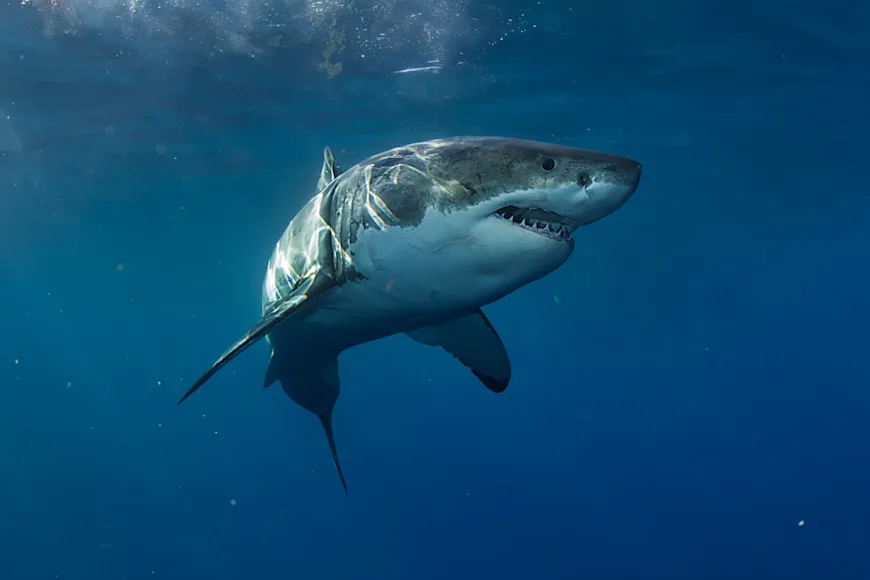The Massachusetts Marine Fisheries Advisory Commission (MFAC) recently approved a series of shore-based shark fishing restrictions. During the commission’s March 27 meeting, it approved several rules proposed by the Division of Marine Fisheries primarily to “constrain the growth of shore-based shark fishing in Massachusetts that targets white sharks.”
Land-based shark fishing has seen an explosion in popularity in The Bay State in recent years. While targeting white sharks, even for catch and release, has been outlawed in the state since 2015, that rule has been unenforceable because anglers can simply claim they're targeting other species of sharks or stingrays.
According to a Boston Herald article, Cape Cod has become a hot spot for illegally targeting great whites in recent years, perhaps in part due to social media and YouTube. “There is a large contingent of anglers on social media that are looking for that viral video of them shark fishing, particularly for white sharks,” said fishery policy analyst with the Division of Marine Fisheries Jared Silva.
Officials say the increase in popularity has resulted in public safety concerns from anglers chumming the water and attempting to lure white sharks near beaches popular among tourists and surfers.
What the Recent Rules Entail
In response, the MFAC enacted an outright ban on land-based shark fishing for most of Cape Cod, except for the South Cape and Islands. Surf fishing for other species—without metal or wire leaders—was not impacted by the ban.
Additionally, the MFAC prohibited chumming the water from shore during daylight hours throughout the entire state’s coastline. The commission also banned the use of drones to deploy baits. “By applying the mechanized and remote-controlled device rule more broadly to rod and reel fishery there is an ancillary benefit of limiting the expansion of the gear into other fisheries, such as striped bass, where its application could result in longer fight times and increased post-release mortality,” explained the MFAC.
The restrictions were approved by the MFAC in a 6 to 1 vote. The one member who voted against the rules was Tim Brady. “I understand the potential user group conflict but are we also preventing somebody who’s targeting a different shark species, which they can target?” he asked during the meeting.
Read Next: Washington Bans Deer and Elk Feeding and Baiting to Limit Spread of CWD
The restrictions are set to go into effect for the upcoming summer season. They come as land-based shark fishing has become a hot-button issue in beach communities elsewhere, including Florida, which also banned chumming for sharks among other tightened restrictions in recent years.


